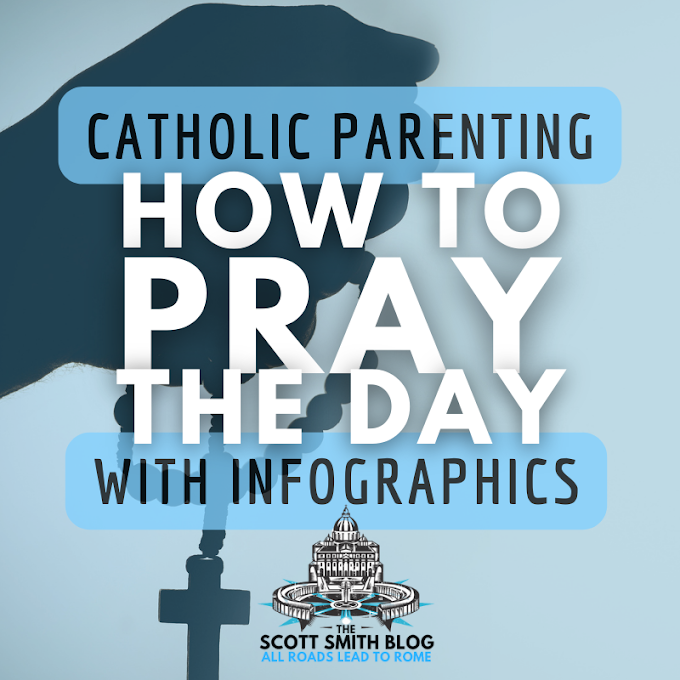"Why are you singing Christmas carols? It's too early for that!" Are you one of those? Just the other day, I saw my own daughter, bone of my bone and flesh of my flesh, plugging her ears with her little fingers as I was singing "White Christmas" to her. Anyway, nothing quite puts me in the Christmas spirit like Burl Ives, so here's a comic I drew starring the Burl Ives as "incarnated" in snow:
 'Tis the season for proving the existence of God and his Incarnated Son!
'Tis the season for proving the existence of God and his Incarnated Son! You might be asking yourself, what's the "Cosmological Argument"? If so, here's a great article by Trent Horn explaining this very influential philosophical proof for God:
New Support for the Cosmological Argument
One of the most interesting and widely discussed arguments for the existence of God is the kalam cosmological argument, which attempts to prove that it is impossible for the universe to have an infinite past. If the argument proves the universe had a beginning, then it follows that some cause that transcends the universe must have brought it into existence. The defender of the kalam argument may also advance other arguments attempting to show that the cause of the universe is God.
Although the argument fell into relatively obscurity after it was promoted in the Middle Ages, it received new life through William Lane Craig’s 1979 book The Kalam Cosmological Argument. Craig has become the argument’s leading proponent, and thanks to his famous debates with atheists that end up on YouTube, the kalam argument has become well-known and is vigorously dissected by critics.
Understanding the Argument
One reason I think that the kalam is so hotly debated is that it is deceptively simple. This is the entire argument:
P1. Whatever begins to exist has a cause.
P2. The universe began to exist.
C. Therefore, the universe has a cause.
You can find hundreds of websites or videos dedicated to the kalam argument, but hardly any that describe, much less refute, the arguments of St. Thomas Aquinas (and even fewer can be found that actually understand what Aquinas is arguing). Part of this may be due to critics' impatience toward the need to tease a syllogism out of the Summa Theologica. He may instead opt for the nice and neat kalam argument, which seems an easy target for a few swings.
I can’t comprehensively defend the kalam argument in a blog post, but I’d like to put forward a new piece of evidence for the kalam argument I have not seen argued in previous literature—specifically, a piece of evidence for premise one (P1).
Craig provides two main reasons to think that “whatever begins to exist has a cause.” The first is intuition, or the conclusion we come to upon thoughtful reflection about the idea that something can’t come into existence from nothing. The second is induction, or the conclusion we draw from universal observation that things which begin to exist always have causes. Critics counter that our intuitions can be mistaken (such as the intuition that the sun revolves around the earth) and therefore we have no reason to think something can't come from nothing. Furthermore, some aspects of quantum physics may undermine the inductive data we have for P1. While I don’t think these objections are sound, I think there is another reason we should accept P1. The reason is that the intuitions behind P1 are also behind the “evidence” atheists admit would change their minds about God’s existence.
New Support for the Kalam Argument
When atheists say theists have failed to show God exists, they must have a standard of what would show God exists in order to know that theists haven’t succeeded in that task. Almost all of these standards share the same evidential pattern: the requirement that something come from nothing without a natural cause. Here are some examples:
- An amputated limb is healed with prayer.
- A message announcing that God exists appears in the sky in every known language.
- A towering giant says he is God and through an act of will rearranges the solar system.
Of course, if it turned out that the limb appeared as a result of a random quantum fluctuation of particles or that the planets were moved by massive spaceships using gravity devices, then these would not count as proof for God, because these events would be natural, not supernatural. Rather, it seems that an event can only be considered an act of God (and not an act of technologically advanced aliens) if it involves something coming from nothing without a natural cause.
We wouldn’t think to worship a scientist who said, “I shall bring 5,000 loaves of bread into existence by thinking,” and then “thinks” to build a machine that reassembles the molecules in the surrounding environment in order to form the bread. However, we might worship a rabbi who said, “I shall bring 5,000 loaves of bread into existence by thinking,” then thinks and so makes bread appear (along with some fish for protein so that everyone has a balanced diet).
The requirement that evidence for God involve something coming from nothing without a natural cause also applies to “knowledge” coming from nothing without a cause. Many atheists say that if the Bible predicted man would walk on the moon in the twentieth century, then they would believe God exists. Well, if it turned out that time-travelers went back and manipulated the manuscripts, that would nullify this alleged evidence for God. However, if the authors of the Bible said they knew it because “God revealed it to them,” then a divine explanation may not be far off.
The Bottom Line
Why should atheists believe P1 of the kalam argument, or why should they believe that “whatever begins to exist has a cause for its existence?” They should believe P1 because they already believe that something cannot come from nothing without a supernatural cause. They already believe that limbs appearing out of thin air, accurate prophecies that just appear in the mind of a prophet, and demonstrations of power of nature that only involve the will can be the result only of God (at least if they are open to the idea of evidence can show God exists).
This shows that our intuition that something can’t come from nothing without a natural cause is reliable, because atheists use this intuition in order to devise evidence that would convince them that God exists. If an arm or an accurate prophecy coming into existence from nothing without a natural cause is proof of God, then why isn’t an entire universe coming into nothing without a natural cause proof of God?
Granted, proving that the universe began to exist from nothing without a natural cause is a much larger task (though if the universe came to be from nothing, then by definition there could be no natural cause because then it would have come from a natural thing that exists, not nothing).
My only goal in this post is to show that if P2 could be established and since atheists already implicitly accept P1, then they should accept the conclusion of the argument and seek out the transcendent cause of the universe.
...
I hope you enjoyed this article and comic! What do you think? Is this convincing? Did you have another understanding of "proof", as in scientific, objective evidence? Please share and comment below!
I hope you enjoyed this article and comic! What do you think? Is this convincing? Did you have another understanding of "proof", as in scientific, objective evidence? Please share and comment below!











0 Comments